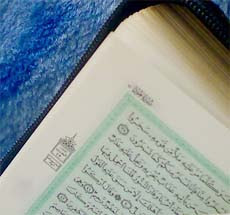The meaning and rules of fasting
The word Sawm means literally in Arabic to refrain. Thus fasting in Arabic means to abstain, refrain from... This is indicated by the word of Allah, exalted is he: " If you see someone of humans, say [him:]" certainly, I dedicated a most gracious young: I will therefore now speak to any human being ". . (S19/V26)
Applied to religion, fasting has taken the meaning of: refrain, by piety, to drink, to eat, to have sexual relations and what is considered likely to break the fast, since the appearance of dawn until the sun sets.Allah says in this sense: "so cohabiting with them now, and seek what Allah has prescribed in your favor; eat and drink until it stands out, for you, the white wire from the dawn of the black of the night. Then complete the fast until night. ' (S2/V187)
The categories of young
Fasting is divided into two categories:
1. The blush or compulsory fasting which includes:
Fasting of Ramadan
The Kaffara or redemption
Nadhr or young as a result of a vow accomplished.
Who needs fast?
Fasting of the month of Ramadan is mandatory for all Muslims, male or female, adult (i.e. having reached the age of puberty), sane, and being neither sick nor travel.
Fast in accordance with the Sunnah
Take the Souhour, which is a meal before dawn. We recommend that you take this meal, due to the great reward and the blessings it brings. The ideal time for the Souhour is the last half hour before dawn and the dawn prayer.
Take the Iftar, which is the fast-breaking meal, immediately after sunset, without delay. For the Islamic law, the sun sets when the Sun's disk disappears on the horizon.
During the fast, should make acts of charity and kindness to others, just as it is desirable to increase his works of worship and read more about the Koran. Every Muslim should strive to complete at least once the reading of the Holy Quran during the month of Ramadan.
Please Share
Category: Fasting













0 komentar